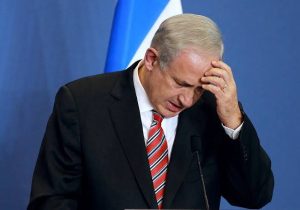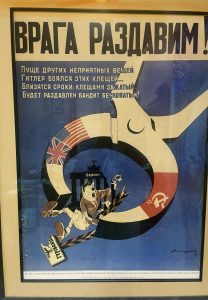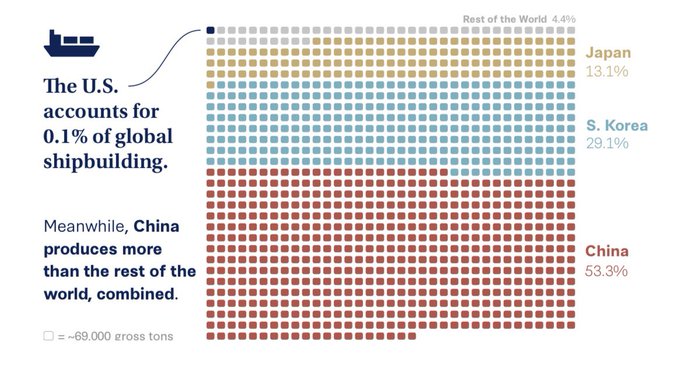Let’s take this in steps.
Air Defense Iranian air defense was not active for the first attack wave. They were online for the second one, about six hours later. It’s unclear why. I have heard two credible claims. The first is that they were hit by a cyber-attack, but came online faster than the Israelis expected.
The second is that the Iranians deliberately played rope-a-dope. The first attack was largely a matter of stand-off munitions, which the Israelis have (had) very limited supplies of. The Iranians tanked that hit, counting on the fact that most military targets were underground and hardened. Then when the second attack happened, which required close in attack, the air defenses were turned on. Because they had not been compromised in the first attack (air defense use makes air defense visible) they were much more effective.
Intelligence Penetration of Iran This was obviously severe, given the number of senior personnel killed during the initial attacks, and given how much of the initial attacks were carried out by drones and automated anti-air defense inside Iran. But what needs to be understood is that Mossad’s networks are being severely degraded. Intelligence networks which are passive, which don’t do anything very active, can exist for years or even decades, but when they go live and are actually used for attacks assets are exposed. Reports are pouring out of Iran of raids on Israeli intelligence agents and collaborators, and while they may be overstated, I find them credible, because it’s how such things work. Israel has gone big, and they are burning assets.
Iranian Counter-Attack This was strong, but not as strong as it could have been. While there’s reason to believe that a lot of the missile launchers hit were dummies, the Iranians should have been able to launch about a thousand missiles in a salvo, and they didn’t. Air defense systems are very subject to be being overwhelmed by numbers. Now it’s possible that they didn’t because they wanted the data from initial strikes to pinpoint air defense, and that each wave was designed to “clear a path”, the first strike, even, hit hard: taking out a lot of military assets and state capacity.
It should also be noted that Iran has not used its most advanced missiles yet. The stuff being sent is mostly old crap that would have been decommissioned in a few years anyway, interspersed with some better missiles, but not the most recent varieties. Iran still has a lot held for future attacks.
If you need a little cheering up, this video compilation of hits on Tel Aviv (obviously partial), may help.
Here is some footage of destruction:
Some footage of destruction in Tel Aviv itself.
All of this is much worse than the previous Iranian attacks. Real destruction. I will point out that if Iran had done this after the embassy assassinations they might have restored deterrence and not suffered this particular attack. Cowardice has its price, and it is often greater than that of bravery.
Finally, from the IDF itself:
Israel does not have enough interceptors and air defense to stop the Iranians from completely devastating their country, which is why they are begging everyone to help them. Iran is already beginning to target Israeli Air Defense. US naval assets can only help so much, as they carry limited supplies and the US itself produces very few air defense missiles every year. Using them all up in Israel will make America completely defenseless in any other war (and Zelensky is already squealing.)
This is entirely a race between Israel’s ability to destroy missile launchers with its aircraft, and Iran’s ability to keep launching missiles. The math is that simple. As an aside, Iran should be priority targeting Israeli air fields alongside air defense.
And What About Nukes? Well, I find this interesting. Directly contradicting Khameini in public is important.
Iranian Major General Mohsen Rezaei on Iranian Radio and Television:
We are still exercising restraint and have not deployed all our capabilities to avoid global chaos.
However, we may reach a point where we use new weapons.
We are seeking to form an Islamic army with Turkey, Saudi Arabia, Pakistan, and several other countries.
We should move towards the atomic bomb, but according to the Supreme Leader’s fatwa, we do not currently intend to build nuclear weapons.
Iraq should know, it is their turn after us. Iran may be forced to take actions that could destabilize the entire region.
It is, of course, obvious that if Iran had nukes, much or most of this would never have happened. North Korean leaders do not worry about being murdered in their sleep by foreign missiles, drones and bombs.
The China Syndrome. All of the materials required to build drones and ballistic missiles are available, cheap, from China. China gets a lot of oil from Iran, uses Iran for transhipment, and is in general a major ally of Iran. It is also aware that taking out Iran is one of the steps before war with it. Just as I said that China would not allow Russia to be taken out by sanctions (and was right), I expect China in the case of any sort of duration of this war, and, indeed, after it, to supply Iran with everything it needs to ramp up production of missiles and drones. Since China’s production abilities exceed those of the West when it comes to these requirements, this is not a small thing.
No Army Means No Fall. Iran cannot be defeated by airpower alone unless there is a significant uprising in the country which the army is unable or unwilling to stop. One should never underestimate the CIA’s regime change abilities, of course, but if they don’t pull it off then this war is about reducing Iran’s power projection ability: doing enough damage that they surrender in spirit if not in fact.
The Khameini Problem. Nations rot from the top, and this is clearly the fundamental problem in Iran. Khameini is cautious, even timid. He has underplayed his hand every single time during this crisis, most importantly when not sending ground troops to stop the fall of Assad. This caused great problems with the younger members of the Revolutionary Guard, who are hardliners almost to a man. The elimination of senior members of defense and government is not strengthening moderates, it is strengthening hardliners.
Israel has said that Khameini is not off-limits for murder. If they do so, it will be a huge mistake. It will end the non-nuclear fatwa (though the Iraniams will lie about that) and put hardliners in charge. Ironically, the best thing Khameini could do for Iran right now is be Martyred. If Allah Wills It, let it be so. I don’t want to get too down on him, in many ways he’s run Iran very well, but he is a victim of Machiavelli’s dictum that when times change most leaders can’t change with the times and the virtues that made them good leaders in the past make them terrible leaders in the present.
The Russia/China Issue. Iran could have had a full military alliance with Russia. If they did, they’d be in a lot stronger position. Iran really wants to be an independent major regional power. The other option is to be the junior partner in a tripartate bloc with China and Russia. I understand why they want to avoid that, but being #3 in the world’s strongest alliance (and yes, that’s what it would be) comes with an absolute ton of benefits. They need to reconsider this issue. They will get some support from Russia and China, indeed, a lot of support, but neither country is going to go all out for them. If either would, Iran would be in a lot less danger.
Final Ironic Cowardly Nazi Note.
Most of Iran’s air and missile command was killed in an underground bunker during a meeting. Hezbollah’s senior leaders were killed in an underground bunker during a meeting. Israel knows Iran has missiles capable of doing the same thing to them, but they know that Iran won’t strike a hospital to kill them. They of course have destroyed many hospitals, in one were the high command of their enemies hiding.
May God grant the side of good, whichever side that is, victory in this conflict and bring an end to genocide.
***
If you’ve read this far, and you read a lot of my articles, you might wish to donate or subscribe. I’ve written over 3,500 posts, and the site, and Ian, take money to run.

 If you’re getting a bit tired of Iran all the time, so am I. We’ll see if we can slip in an article on something else.
If you’re getting a bit tired of Iran all the time, so am I. We’ll see if we can slip in an article on something else.


